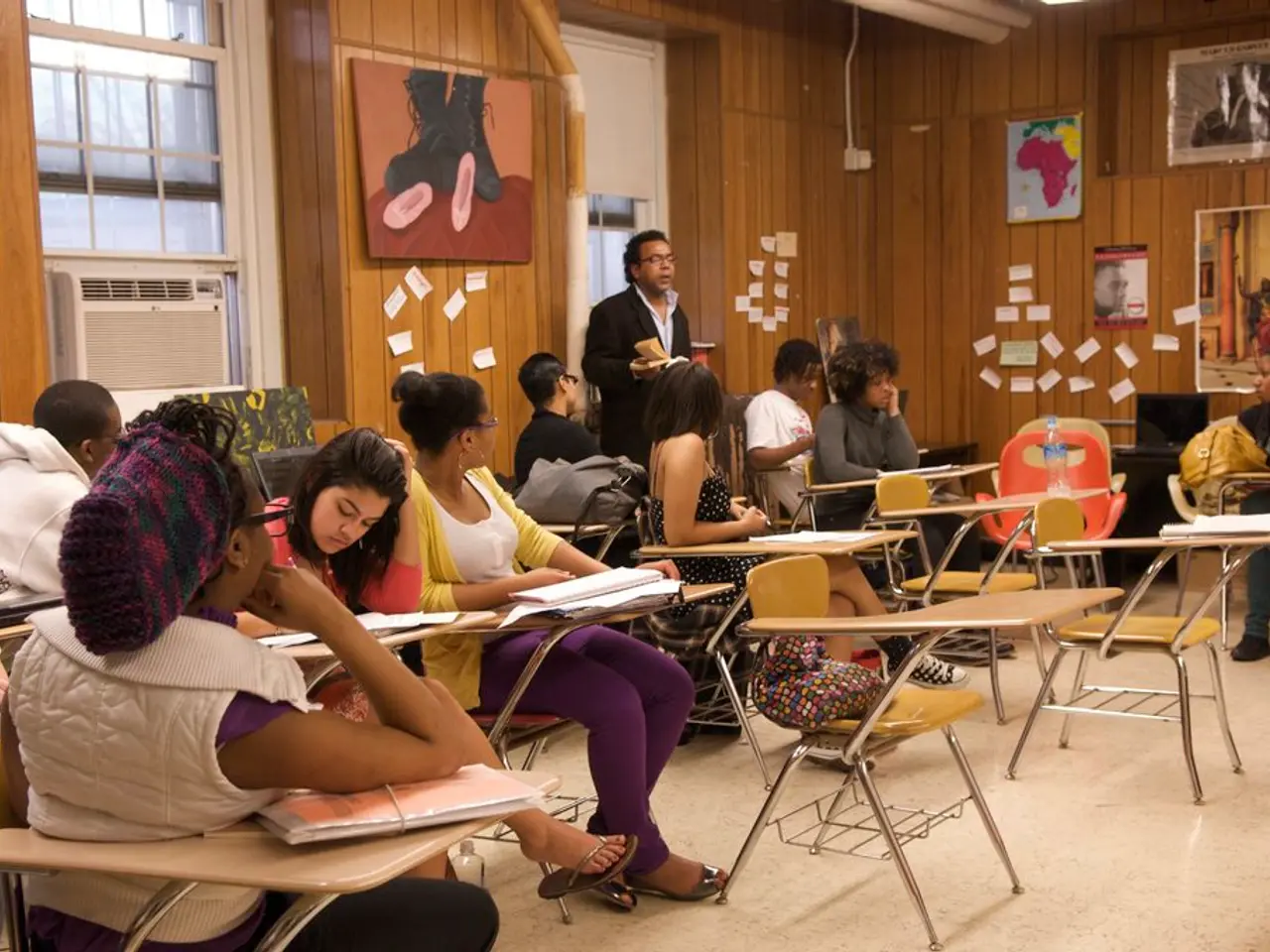Approaches for Boosting the Performance of Struggling Pupils Successfully
In the educational landscape, motivating underperforming students plays a crucial role in fostering academic achievement. By employing a combination of proven strategies, educators can create an engaging, supportive, and personalised learning environment that caters to the unique needs of each student.
One of the key approaches is to cultivate a positive growth mindset. By helping students understand that their abilities can develop through effort and persistence, they are encouraged to embrace challenges and persist despite setbacks, leading to greater motivation and achievement.
Increasing active engagement with varied instruction is another effective strategy. Introducing variety in teaching methods, setting clear goals, and including brief mental resets can help regain and maintain student focus without causing frustration.
Personalising learning to fit individual learning styles is also essential. Recognising and adapting lessons to students’ preferred learning modalities (visual, auditory, kinesthetic, tactile) leads to higher engagement and motivation. This approach can reduce dropout rates and improve academic outcomes by making learning more relevant to each student’s strengths and needs.
Utilising data-driven insights is another valuable tool. Tracking student performance data enables teachers to tailor their instructional models and interventions to better support underperforming students, ensuring balanced support across different ability levels without reinforcing negative self-beliefs.
Incorporating mindfulness and self-regulation techniques can also be beneficial. Teaching mindfulness skills helps students manage frustrations and impulsive behaviours, allowing them to focus more effectively on learning tasks and improve self-control in the classroom.
Optimising the classroom environment is another crucial factor. Aligning seating arrangements and classroom management strategies with instructional goals fosters better engagement and academic performance among students.
In addition to these strategies, providing opportunities for students to set personal goals can foster a sense of ownership and responsibility for their progress. Effective motivation strategies for underperforming students also include setting clear, SMART goals, creating a supportive learning environment, and implementing engaging teaching strategies.
Recognising and rewarding progress is a vital component in motivating underperforming students. This can be achieved through verbal praise, certificates of achievement, or even a simple note of encouragement. Gamification elements in lessons can also make learning enjoyable for underperforming students.
Technology can play a significant role in enhancing student engagement and motivation. Incorporating educational apps and platforms that provide personalised learning experiences can be effective in motivating underperforming students. Setting up a classroom display for student achievements or organising a "success wall" can visually remind students of their progress.
Collaboration with parents and caregivers can significantly enhance student motivation and academic performance. Regular meetings, phone calls, and emails can help establish trust and transparency between educators and parents. Providing resources for parents to support their children's learning at home can foster a sense of community.
Online collaboration tools can facilitate peer interactions and foster a sense of community among students. Multimedia resources, like videos and podcasts, can stimulate interest in underperforming students.
Establishing a consistent framework that promotes positive attitudes toward learning can contribute to sustained motivation. Fostering a culture of resilience can help students face challenges with confidence. Encouraging self-motivation can significantly enhance the academic performance and personal development of underperforming students.
By combining these strategies, educators can create a supportive and motivating environment tailored to help underperforming students improve academically and develop responsible behaviour.
In the realm of education-and-self-development, promoting e-learning opportunities could help underperforming students by offering personalised learning experiences through educational apps and platforms. To further boost personal-growth, incorporating mindfulness and self-regulation techniques can help students manage frustrations and impulsive behaviours, improving self-control and focus.




